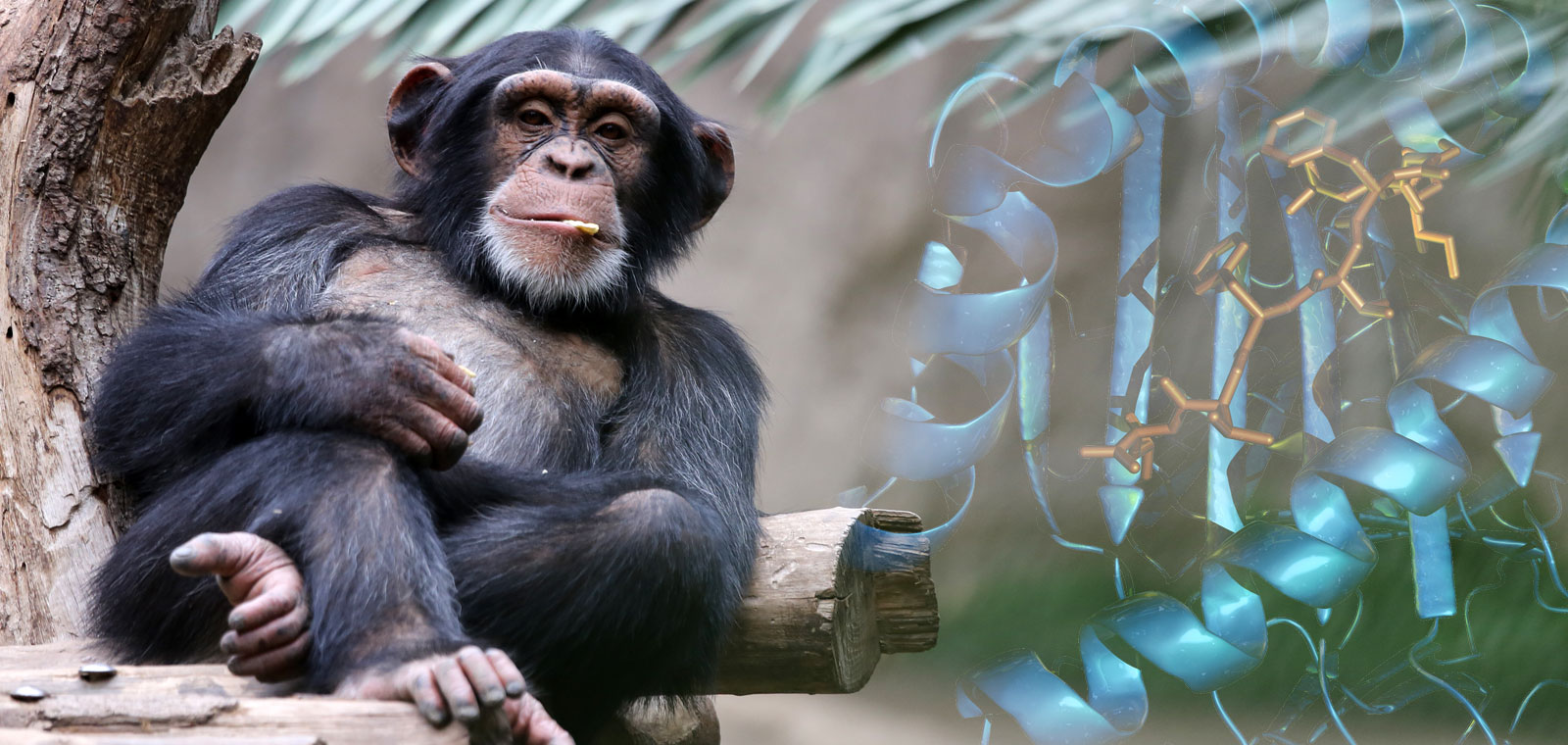
Genetics is an important line of research within BPRC. For example, we investigate the MHC. MHC stands for major histocompatibility complex, and these genes play a central role in the immune system.
The MHC was once discovered as an important factor in post-transplant rejection. Today we know that the MHC is also involved in our defense against pathogens. Small differences in the MHC genes cause the immune system of one person to respond differently to a pathogen than the immune system of the other. That is how genetic diversity of MHC genes ensures that a new pathogen, for example a virus, does not immediately cause an entire population to become extinct.
Populations grow and shrink, how can genetic diversity be maintained?
The MHC originated early in evolution. Despite the fact that humans and chimpanzees have evolved independently for millions of years, the chimpanzee's MHC is similar to that of humans. Yet there are differences. For example, in chimpanzees we see fewer different MHC variations but the function of these variations is not smaller. Sounds complicated, but the hypothesis is that part of the chimpanzee population was eradicated in the past due to an HIV-like virus. As a result, the MHC variations that resisted the virus were enriched in the remaining chimpanzees. Now, many generations of chimpanzees later, we see that more variation has emerged within this remaining MHC pool. Identifying which molecular mechanisms are responsible for this, can learn us a lot.
DNA from the BPRC bio-bank used for analysis
Together with the Anthropology research group at the University of Geneva we investigated the MHC genes of chimpanzees in more detail. We compared chimpanzee DNA from our bio-bank with the DNA of other chimpanzee colonies and with small, closed human populations.
Recovery of genetic diversity after demographic decline
Indications of changes in DNA were found in both humans and chimpanzees. From this we can conclude that humans and chimpanzees use similar mechanisms for creating molecular diversity of their MHC and thus restoring the genetic variation.
Read more on the website of BMC Evolutionary Biology.

